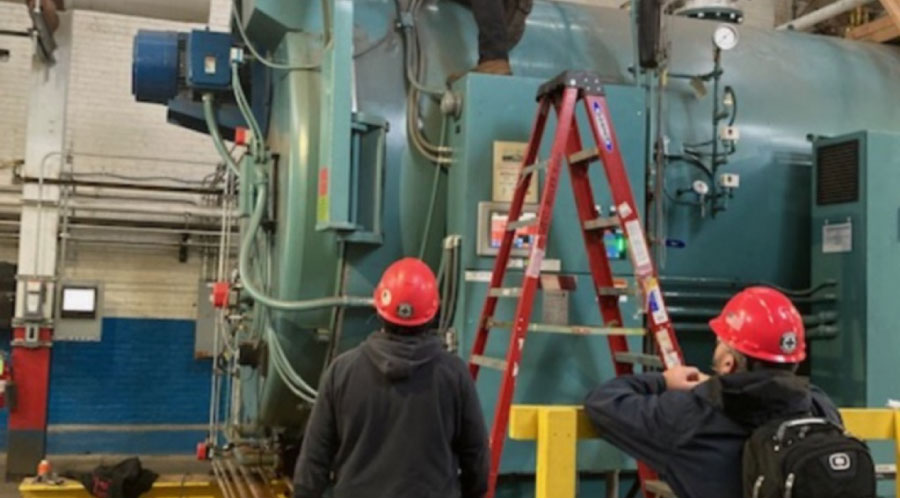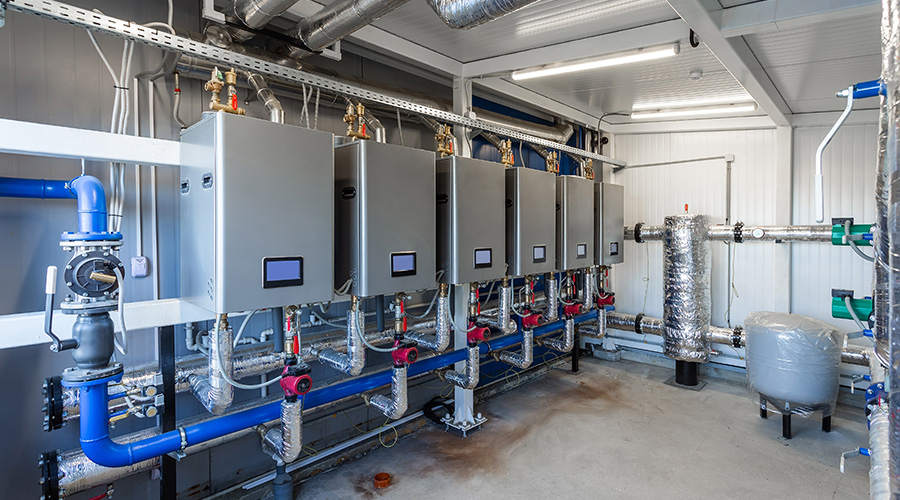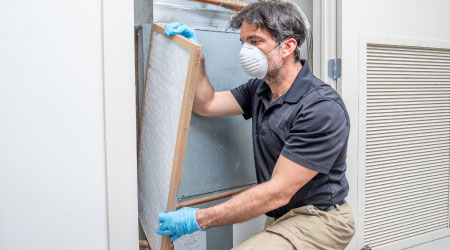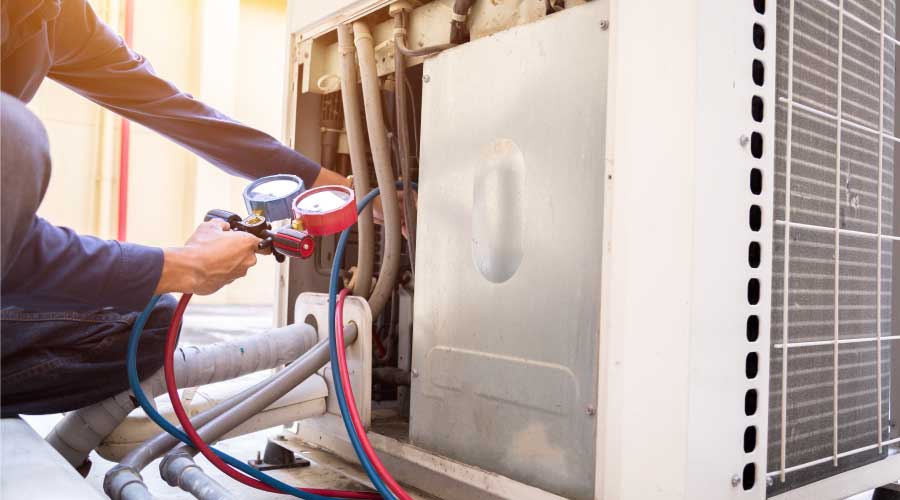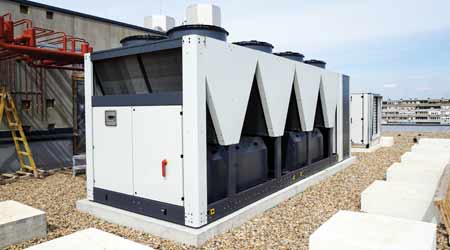 Proper water treatment is crucial to keeping cooling systems employing recirculating water operating effectively.
Proper water treatment is crucial to keeping cooling systems employing recirculating water operating effectively.FMs Must Address Legionella As Part of Proper Water Treatment
Oxygen and gunk in the air are also key considerations that must be addressed with proper water treatment.
Some of the bacteria in the air that we breathe and the water that we drink have the ability to make us very sick, and even to kill us. Legionella Pneumophilia is a species that is frequently present in all fresh water, as well as in the air and the soil. These bacteria are normally present in very small numbers in the environment, but they can rapidly multiply under the favorable conditions that exist in warm water. Any physical process that breaks the water up into very fine droplets that can be deeply inhaled into the lungs can be responsible for rapid multiplication, or amplification. Once these organisms are inhaled in sufficient number they can cause a sometimes very virulent form of pneumonia, known as Legionellosis, to develop in susceptible individuals. Systems such as showers, fountains, spas, hot tubs, open evaporative cooling devices, and medical instruments that generate fine droplets.
While the microbial control programs currently being provided by water treatment suppliers may have some beneficial effect on Legionella, the control parameters necessary to control microbially induced deposition and corrosion are much less stringent than what is needed to minimize the impact of Legionella on human health. Unfortunately, there is as yet no consensus on what levels of Legionella can be tolerated to ensure that no-one will get sick. This is an emerging problem for building owners that should be addressed by each facility, and each facility manager should become familiar with the issues and make sure that they are addressing them with their water treatment supplier. Legionella are known to proliferate anywhere in the system where deposits and corrosion products accumulate and promote the formation of bio-mass. This means that extra attention is needed to equipment maintenance issues such as maintaining good uniform water distribution; design flow rates in system piping and equipment; eliminating “dead legs” with little or no flow; and sanitation issues, such as regular equipment cleaning and periodic disinfection.
Oxygen. The air introduced into the water in open cooling towers, evaporative condensers, closed circuit coolers, and air washers, greatly increases the corrosivity of the water. Organisms such as algae, fungi, yeasts, and slime forming bacteria can also thrive in the warm liquid environment. Water under deposits quickly becomes oxygen-depleted due to various chemical and microbial metabolic reactions including corrosion. The difference in oxygen between clean and dirty portions of a metal surface can result in differential oxygen concentrations. This kick-starts corrosion, accelerates it, and causes the corrosive attack to be concentrated on small portions of the metal, which become anodic relative to the larger cathodic surfaces of the surrounding metal.
Gunk in the air we breathe. Open recirculating cooling devices are very effective air scrubbers, and they introduce large quantities of gasses, particulate matter, dust, debris, dirt, pollen spores, plant material, sand, and organisms into the water. The particulate material scrubbed from the air, as well as corrosion products and live organisms can also quickly deposit out onto system surfaces, resulting in soft alluvial deposits and bio-mass.
Robert J. Cunningham, PE, is a principal consultant with Arthur Freedman Associates, Inc. He has 53 years of field service and troubleshooting experience with national water treatment companies, involving boiler and cooling water, chemical cleaning, waste water treatment, process chemical treatment, paper chemicals treatment, oil production chemicals, and municipal water preparation.
Email comments and questions to edward.sullivan@tradepress.com.
Related Topics:














